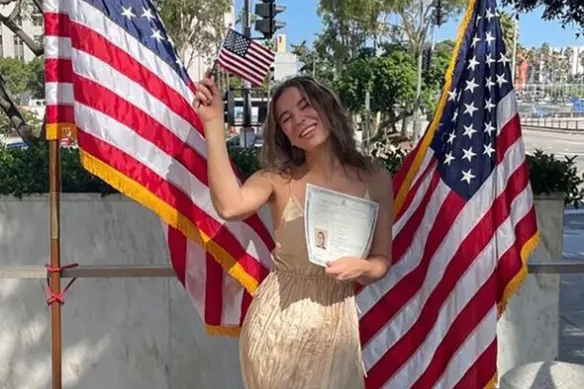Russia has released American-Russian dual national Ksenia Karelina in a high-profile prisoner exchange with the United States, U.S. officials confirmed Thursday. The swap took place in Abu Dhabi, with both parties conducting the exchange under heavy security.
“Ksenia Karelina is on her way back to the United States,” Secretary of State Marco Rubio announced on X. “She was wrongfully detained by Russia for over a year, and President Trump secured her release.”
Russia’s Federal Security Service (FSB) confirmed to state-run TASS news agency that President Vladimir Putin had granted Karelina a pardon.
In exchange, Russia received Arthur Petrov, a German-Russian dual citizen arrested in Cyprus in 2023 at the request of U.S. authorities. Petrov was accused of attempting to illegally export sensitive U.S.-made microelectronics to Russia.
A video released by Russian authorities showed the exchange taking place at Abu Dhabi International Airport. In the footage, both delegations, with officials in suits and blurred faces, supervised the swap. Petrov, speaking briefly in the video, said he felt “not bad,” though he was exhausted after two days without sleep.
The Kremlin declined to comment on the exchange, according to Russian state media.
Karelina, a Los Angeles resident, was detained in January 2024 while visiting her family in Yekaterinburg. Initially charged with “petty hooliganism,” she was later accused of treason after Russian authorities alleged she donated around $50 to a Ukrainian charity. In August, a court sentenced her to 12 years in prison. Her appeal was rejected later that year.
The CIA played a critical role in facilitating the exchange, according to the Wall Street Journal, which first broke the story. CIA Director John Ratcliffe reportedly led negotiations with FSB chief Alexander Bortnikov and was present at the handover in Abu Dhabi.
“Today, President Trump brought home another wrongfully detained American from Russia,” Ratcliffe said in a statement. “I’m proud of the CIA officers who worked tirelessly to support this effort, and we thank the Government of the U.A.E. for making this exchange possible.”










